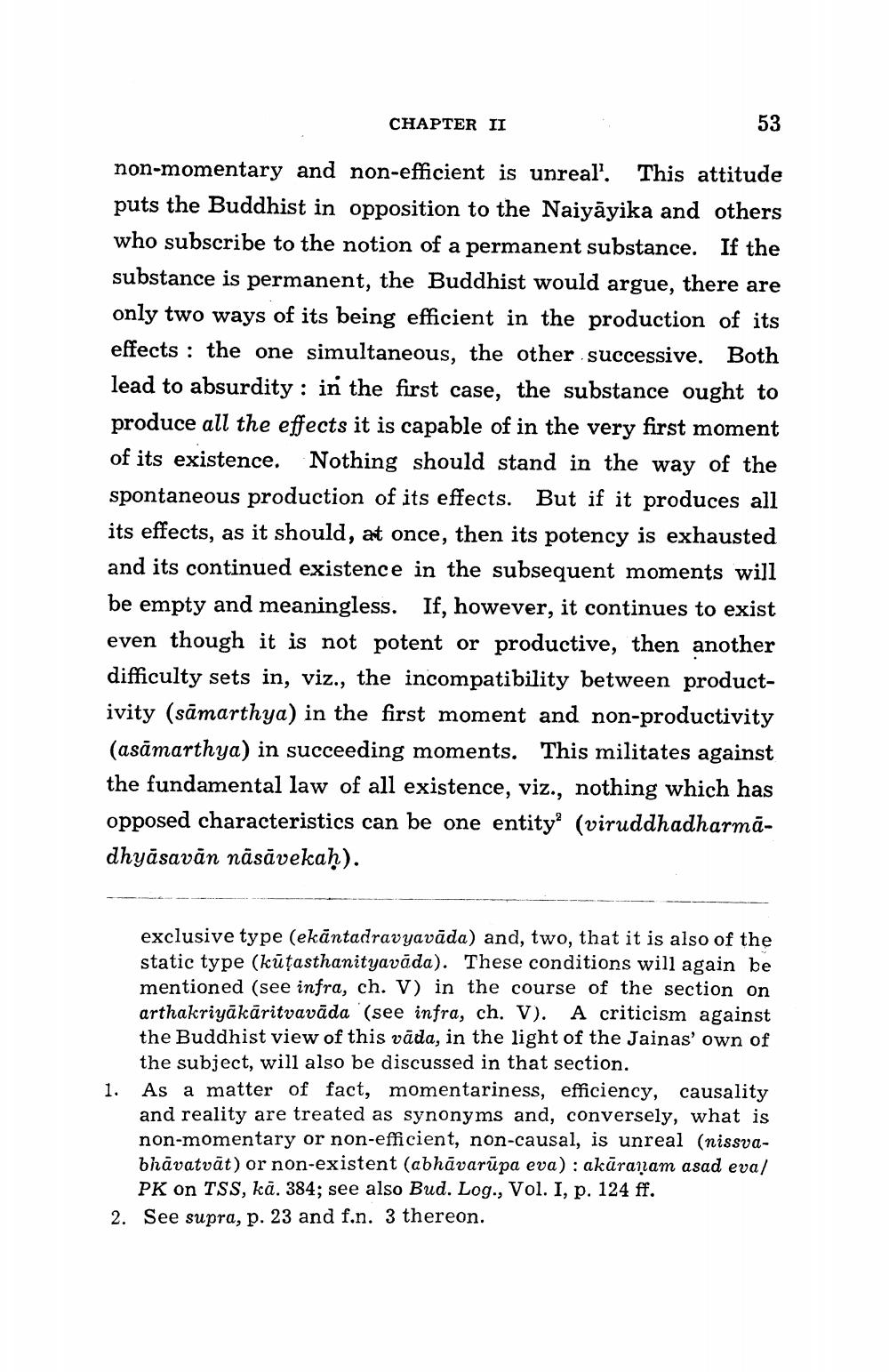________________
CHAPTER II
53
non-momentary and non-efficient is unreal. This attitude puts the Buddhist in opposition to the Naiyāyika and others who subscribe to the notion of a permanent substance. If the substance is permanent, the Buddhist would argue, there are only two ways of its being efficient in the production of its effects : the one simultaneous, the other successive. Both lead to absurdity : in the first case, the substance ought to produce all the effects it is capable of in the very first moment of its existence. Nothing should stand in the way of the spontaneous production of its effects. But if it produces all its effects, as it should, at once, then its potency is exhausted and its continued existence in the subsequent moments will be empty and meaningless. If, however, it continues to exist even though it is not potent or productive, then another difficulty sets in, viz., the incompatibility between productivity (sāmarthya) in the first moment and non-productivity (asāmarthya) in succeeding moments. This militates against the fundamental law of all existence, viz., nothing which has opposed characteristics can be one entity (viruddhadharmadhyāsavān nāsāvekah).
exclusive type (ekāntadravyavāda) and, two, that it is also of the static type (kūțasthanityavāda). These conditions will again be mentioned (see infra, ch. V) in the course of the section on arthakriyākāritvavāda (see infra, ch. V). A criticism against the Buddhist view of this vāda, in the light of the Jainas' own of the subject, will also be discussed in that section. As a matter of fact, momentariness, efficiency, causality and reality are treated as synonyms and, conversely, what is non-momentary or non-efficient, non-causal, is unreal (nissvabhavatvät) or non-existent (abhāvarüpa eva): akūraram asad eva/
PK on TSS, kā. 384; see also Bud. Log., Vol. I, p. 124 ff. 2. See supra, p. 23 and f.n. 3 thereon.




